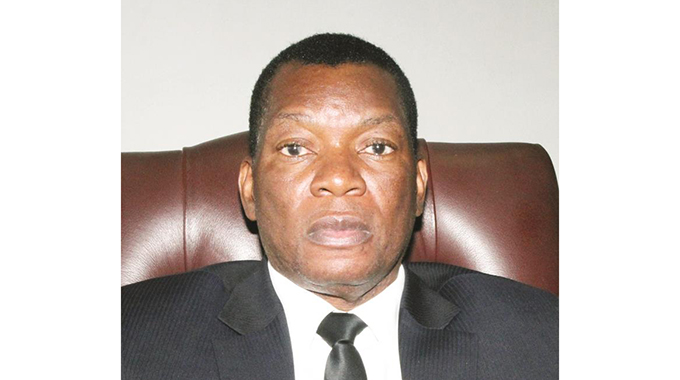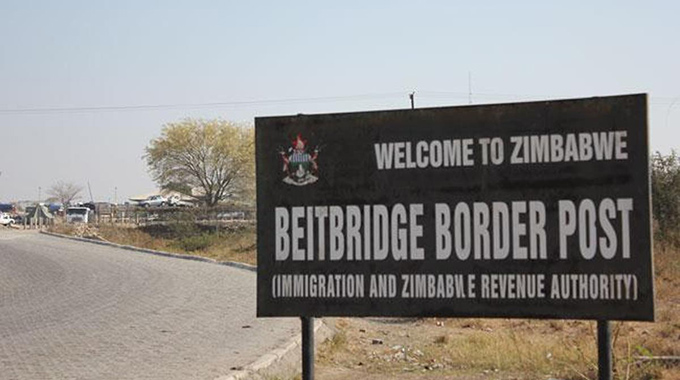Editorial Comment: New prosecution rules will help defeat crime

The recent quashing of charges,the removal from remand in some high profile corruption cases and long delays in others highlights the urgency of administrative reform in assembling evidence, in formulating the charges for an arrest and in making the decision of when to prosecute and on what charges.
Prosecutor-General Kumbirai Hodzi has now issued new and detailed prosecution guidelines that if implemented fully could go some way to sorting out the legal problems that have arisen. The basic new factor is that once reports have been made and initial evidence is gathered, Mr Hodzi’s office and the prosecutor he assigns to the case take a more central role rather than just become involved when the accused is arrested and wheeled into court.
Of course, for the overwhelming majority of simple criminal cases the system in place works well. The crime is simple, the evidence is there, the charge is obvious and the process can go forward without long delays.
But there are a growing number of more sophisticated criminals and already we have seen that crimes that involve potential corruption and financial fiddles, and some of the more organised gangs involved in robbery and the like need more focussed and centralised efforts to gather evidence and formulate precise charges based on that evidence.
Many countries bring in the prosecutor much earlier than has been the norm in Zimbabwe, especially when there is a complex case with a lot of legal ramifications. Most of Europe, outside Britain, have formalised this process with a person known as a magistrate or judge, but in effect the legally qualified person who will prosecute or make the prosecution decision, even directing the investigation.
You get the same thing is at least some American states where the legal staff in the attorney general’s office run the investigation with the police. The details of these arrangement vary, and they work well when both the potential prosecutor and the professional detectives respect each other and work together as a team.
From Mr Hodzi’s comments it appears that at times there has been pressure on prosecutors to initiate a case when evidence is still lacking. In effect, and we have seen this in many applications for postponement of trial, remand is seen as a time to gather evidence rather than just assemble the witnesses and the like.
Mr Hodzi has even mentioned that some of his prosecutors have been threatened when they express their doubts with being charged as potential accomplices. That is obviously wrong.
But on the other hand the prosecutors must realise that they have to co-operate fully as well. These are the sort of administrative problems that will have to be sorted out between the Prosecutor General and the Police Commissioner General, with other agencies like the Zimbabwe Anti-Corruption Commission involved as well.
There is another problem that can lead to an over-early arrest. Someone who finds out that they are being investigated for a serious crime might just decide to take a very long holiday while the going is good. This is one of the valid reasons why sometimes an early arrest is needed and one that must be considered. And then there is ordinary public pressure for the authorities to be seen to be doing something, and that pressure is justified.
But all that said, having the assigned prosecutor involved early, even before an arrest in some cases, and working through the legal matters from the beginning, carefully explaining what the potential charges could be and therefore what sort of evidence is needed for each option, coupled with estimates from investigators on what sort of evidence could be gathered, could avoid many other problems. At least everyone is involved in the same case and singing from the same hymnsheet.
The Drax case from last year was an example. An expensive credit deal was signed for what turned out to be overpriced medical supplies. It was blocked at the last stage, when examined by the Treasury, since it did not give value for money but not before the first payment was made.
As responsible minister, then Health and Child Care Minister Dr Obadiah Moyo had to take responsibility and in the absence of his resignation the President had little option but to fire him. This would be the case even if he had just made a major error of judgment. There might have been more involvement, but the investigators have had well over a year to dig deeper and the charges were still found to be imprecise by the High Court.
The local representative of the supplying company was also hauled into court, but again the High Court, in the absence of any evidence that coercion was used, had to agree that grossly overpricing supplies in an offer document was not a crime. Buying such supplies could well be a major error and in certain circumstances could be criminal.
This was a case that cried out for central legal direction from the very beginning so that precise evidence was gathered and so precise charges could be laid if there was a reasonable suspicion of foul play.
Mr Hodzi mentioned another factor that sometimes does need to be considered. He complained that in some cases potential witnesses in the main case were arrested and charged as well. Here we move into difficult territory, the accomplice witness, as a criminally involved whistleblower is termed in our law.
But sometimes we need the lower level accomplice to nail the top level in a criminal enterprise, and that witness can be discharged by the courts if they seriously sing under oath in the witness box. In Italy and the USA the battle against the Mafia has taken this an extra step, but granting protection to these accomplice witnesses, even going as far as new identities. If we are to defeat corruption this is a legitimate tool.
The main thing that comes from Mr Hodzi’s revision of the rules is that the shortcomings of our systems are being identified and action being taken. But if anyone else in the process, and that includes all the investigation agencies, has good ideas for improvements then these must be incorporated.
What we want is a first-class system that works, with the guilty convicted and the innocent set free and preferably not bothered, and the minimum-sized grey area between these two groups.









Comments